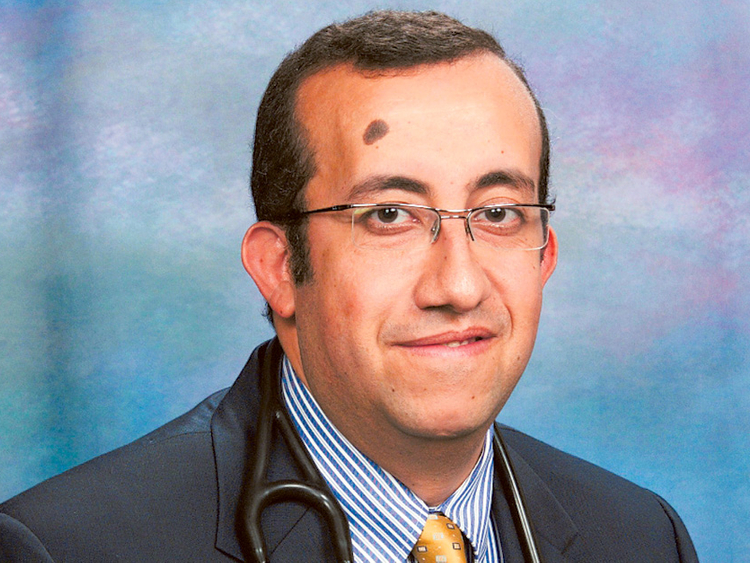
Abu Dhabi: Patients in the Gulf are on average 12 years younger when they suffer from their first cardiac episode when compared to their counterparts in Europe and the United States, recent studies have shown.
What this means is that cardiovascular disease tends to occur at a younger age in patients in the region, and is often more aggressive, a top cardiologist said in the capital on Wednesday.
“The average age when the first cardiac episode, such as a heart attack, occurs is about 60 to 74 years in Europe and the United States. In the Gulf, including the UAE, we see patients who are in their late 40s and early 50s,” Dr Hani Sabbour, consultant cardiologist at the Shaikh Khalifa Medical Hospital, told Gulf News.
“This is a serious threat as the likelihood of the patient dying within five years of a cardiac episode is as high as 50 per cent, especially if rigorous disease management is not undertaken,” he added.
The doctor was speaking on the sidelines of the Asian Pacific Society Cardiology Congress, which kicked off in the capital on Wednesday. The four-day medical conference is expected to see the attendance of nearly 2,000 medical professionals and experts, who will discuss the latest guidelines, challenges and trends in managing cardiovascular diseases.
There are a number of reasons why residents in the Gulf are particularly prone to cardiovascular disease, which still ranks as the top killer in the UAE. These include the high prevalence of diabetes, which afflicts 19 per cent of the UAE adult population, and the large proportion of obese people in the region.
In addition, Dr Sabbour said that there could be genetic contributors, but that these have not been adequately studied as yet.
“Perhaps one of the most important steps after a cardiac episode is to ensure long-term care for the patient. Unfortunately, this is still lacking in much of the Gulf countries. In fact, a recent investigation found that of 44 hospitals surveyed, most with advanced cardiology units, only 14 had a specialist congestive heart failure unit,” the doctor said.
These congestive heart failure units follow up with patients and gradually adjust their level of required medications. In addition, physicians can recommend the use of devices such as pacemakers to prevent sudden heart failure.
“The use of proper medication and medical equipment can reduce the likelihood of another cardiac episode by up to 38 per cent each year. Without these in place, there is a 17 per cent annual probability that a patient who has already had a heart attack will have another,” Dr Sabbour explained.
He also said that the Gulf countries face a significant challenge in ensuring the health of cardiac patients.
“Our patients are younger, and have a sense of invincibility about their health. So they tend to seek treatment fairly late. In addition, there is a high prevalence of smoking, and patients often don’t take as much medication as is required to prevent recurrent cardiac episodes,” the specialist said.
The doctor also said there is a need to study genetic factors that contribute to the high rate of cardiovascular disease in the region.













